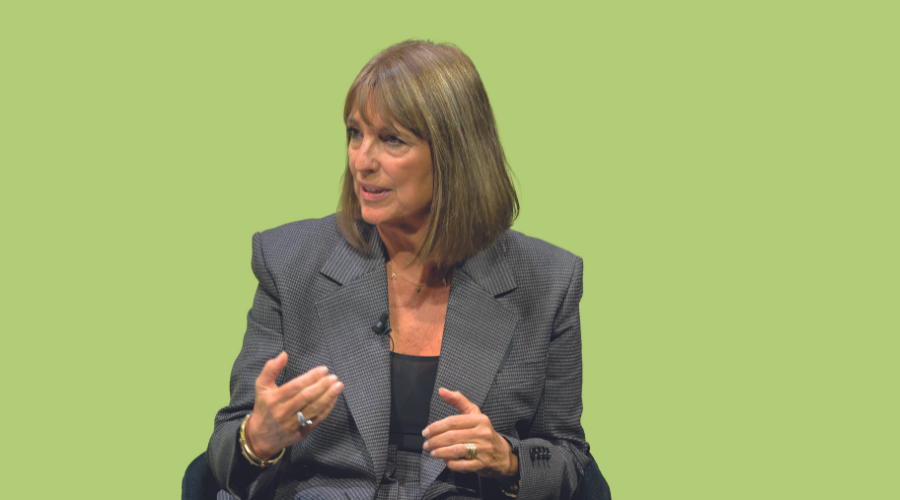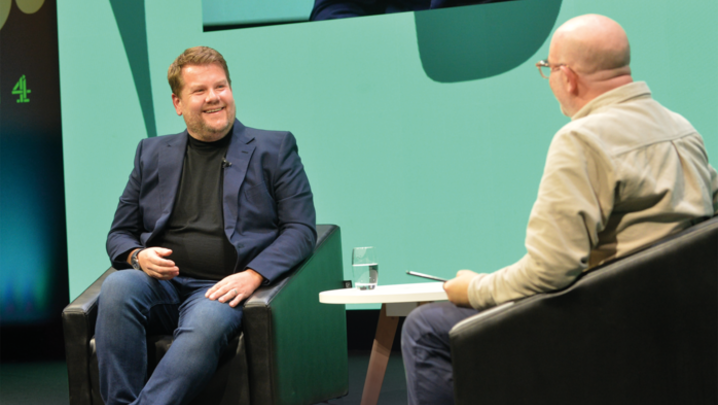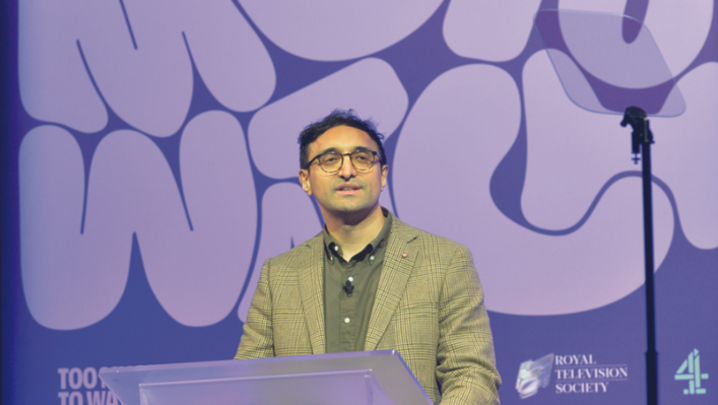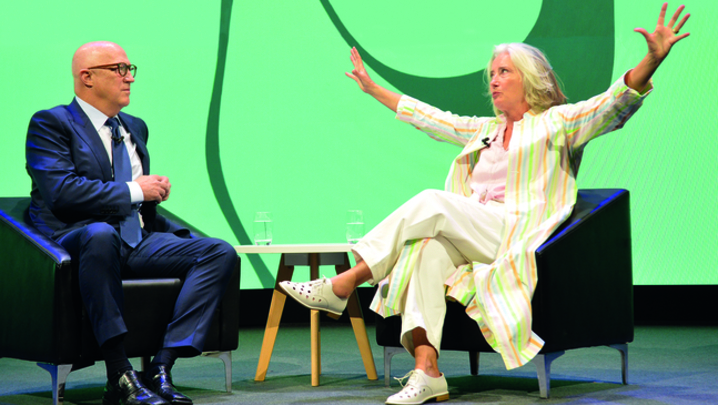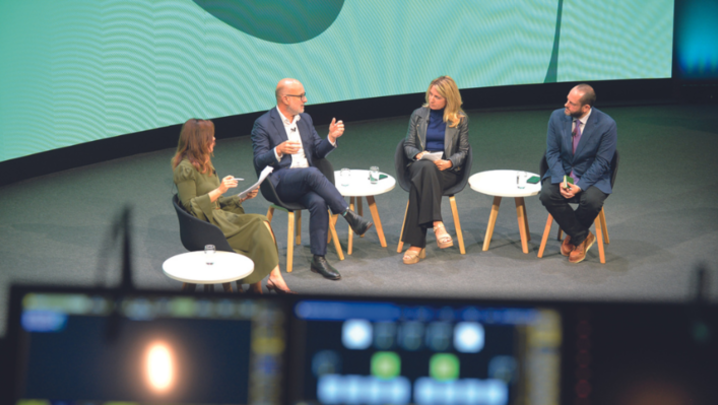The ITV CEO highlights ITVX’s success – and wonders when the ad market will turn
The past few years have been eventful for most, but the highs and lows of ITV’s fortunes have been particularly pronounced. Its advertising revenues were hit hard by the pandemic, but the broadcaster bounced back to achieve record advertising in 2021-22. At the end of 2022, there was another watershed moment: it launched ITVX, its heavyweight streaming service to replace ITV Hub with a combined 26,000 hours of ITV and Britbox content. But, this year, its advertising revenues have again slumped.
As session chair Dharshini David highlighted, ITVX enjoyed a “big bang start”, serving about 2 billion streams in less than a year.
But, said ITV’s CEO, Carolyn McCall: “More important is that monthly active users – people who are coming regularly – has gone up by 24%. We’ve got nearly 12.5 million monthly active users. And registrations have gone up to something like 25 or 28 million.”
Another key metric is a 93% increase in light viewers, those who come for ITV’s big hitters, such as Love Island, World Cup football or rugby, then engage with other programmes on the platform.
“That means, as a streaming service, it’s working,” said McCall, who took up her post in 2018. “And it’s working from an advertising point of view because there’s a lot more inventory and a lot more quality audience, [and] we’re reaching people who were not coming as frequently before.”
‘I can’t distinguish between the [parties’] policies… to get us out of [this stagnation]’
Part of ITV’s digital strategy is to improve the user experience and personalisation within the app via Planet V, its in-house advertising and targeting platform. Referring to “The future of advertising” session, McCall said: “I loved it when they said of personalisation, ‘It’s not just about getting me, it’s about understanding me.’ That is really important. The more data we have, the more we understand how we can gently bring you in, rather than you feel[ing] targeted.
“On all levels, the strategy is of supercharging streaming…. Do you remember the share price absolutely tanked when we announced ITVX? It didn’t help that it was on the fifth day of Russia invading Ukraine. It was not the right timing for the investors to understand why we were doing it the way we did. [But now] they are hugely supportive of the strategy. They believe it’s the right thing to do.”
However, ITV’s continued success – and, indeed, that of other commercial broadcast organisations – still depends significantly on advertising revenue. McCall made no bones about the inclement year the company is experiencing, with a difficult first half (in March, it issued a warning that advertising revenue would fall 11% in the first quarter) compounded by an unexpectedly challenging second half.
The problem, McCall said in no uncertain terms, was that advertising spend was linked to the health of the UK economy. As such, it was the responsibility of the Government to improve conditions.
“It talks about growth all the time, but what are the initiatives for properly growing the economy?” she wondered. “It feels like everyone’s waiting because everyone knows there’s going to be an election. It is frustrating because, economically, we are doing worse than every single European country, other than Germany.”
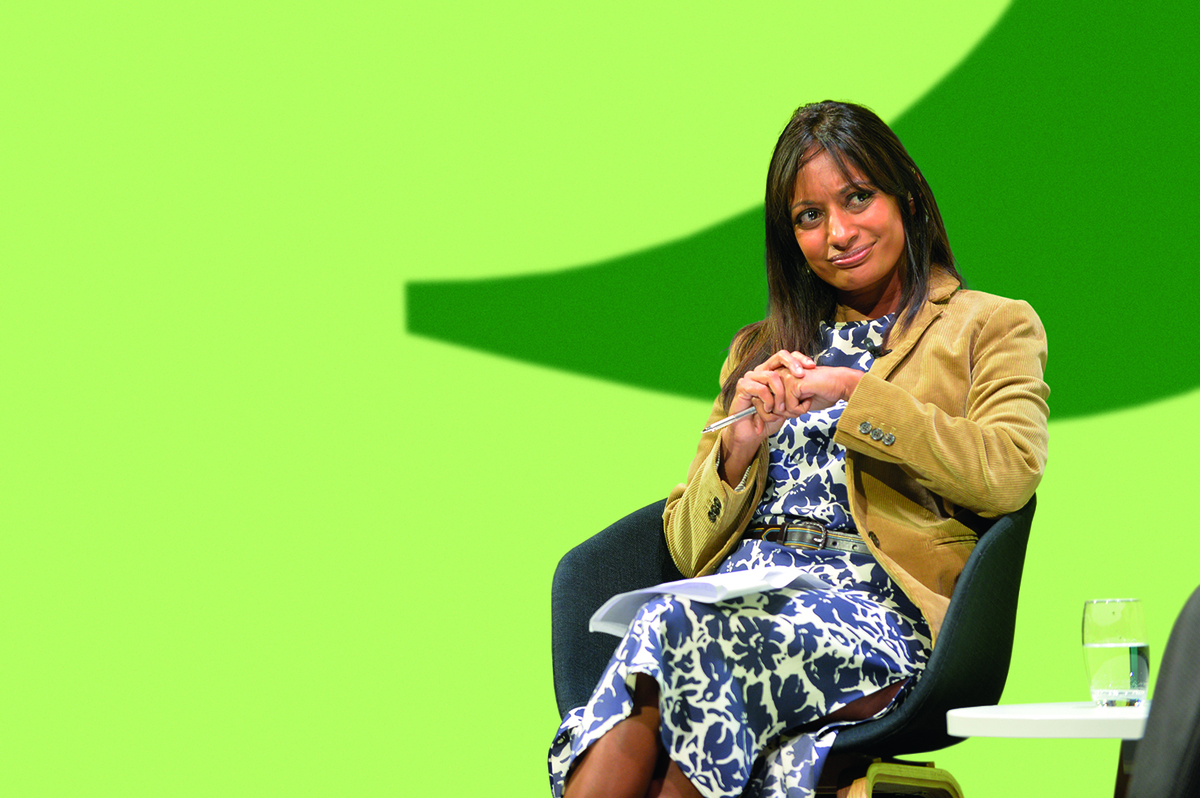
Asked if any politician had a credible plan, she drew laughter from the audience by replying: “You would be able to answer that if anyone announced a plan. I can’t distinguish between the policies. I can’t tell what the real differences are and what really is going to get us out of what is quite a stagnant, quite gloomy [time].”
ITV’s current strategy is to preserve its linear advertising while boosting digital revenue – that’s where Planet V comes in – and by expanding ITV Studios “so that you’ve three different profit pools rather than one”. The final pillar suggested that the acquisition of All3Media (part-owned by Liberty Global, which also has a stake in ITV) would have been a comfortable fit, had ITV not pulled out of talks in July.
David picked up on the phrasing of the statement issued at the time – that ITV “continues to monitor but is no longer actively exploring the possible acquisition of All3Media” – which suggested it may be open to renegotiation if conditions were favourable.
McCall explained the statement: “Because we’re a quoted company, we had to say that we were no longer actively exploring, because that was true. We said we’re monitoring the situation, which we are. And any process that is kicked off, we will watch very closely. That’s what I’ve said and that’s all I’m going to say.”
ITV’s bid to grow its studio offering continues through smaller acquisitions and organic growth. It has also attracted proven talents across the industry to set up labels within ITV Studios. Examples include Red Production Company founder Nicola Shindler, who set up Quay Street Productions, and former Head of Television at Blueprint, Dominic Treadwell-Collins, the founder of drama label Happy Prince.
ITV’s future also offers a blast from the past. Big Brother, the Banijay (previously Endemol) show that kicked off the reality TV revolution in 2000, is the cornerstone of the ITV autumn schedule. The reboot might be seen as a means of leveraging ITV’s Love Island audience, which is now 10 series in, but McCall stressed that it was intended to appeal to a wider audience.
“Big Brother is iconic [but] a lot of people who are under 30 won’t necessarily have heard of it,” she said. “[However,] reality is not a genre just for young people. Love Island gets a lot – 65% are under 30 – but most reality shows will get a spread. For it to be on ITV, Big Brother has to appeal to a broader demographic than only young people.”
AI will be integral to ITV’s future. On the production side, said McCall: “What I’d really like to do is be able to give all the creatives in our business a platform to experiment and to play with the tools.
“For me, it’s about getting everyone used to it, not panicking about it. The threats are obvious and protecting IP is going to be critical. I don’t think it replaces human creativity, but there’s lots of opportunity to augment creativity.”
The ITV CEO was also confident that ad sales would improve: “I do think advertiser revenue will bounce back – I don’t want to be too gloomy about that. When it goes, TV is usually the first to go because it’s more expensive…. But when it comes back, it comes back hard. Covid is a great example of that.
“I think it will recover; it’s just that the uncertainty means it’s very hard to forecast when that will be.”
In Session Nine, ‘UK keynote: Carolyn McCall’, the ITV CEO was interviewed by Dharshini David, BBC Chief Economics Correspondent. The producer was Sue Robertson. Report by Shilpa Ganatra.

